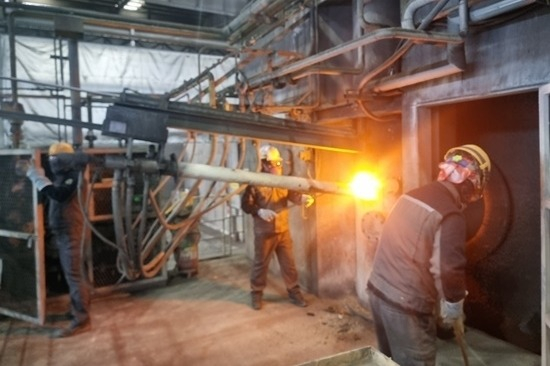Waste management
KPS to recycle waste batteries for Samsung Electronics
The company enters the market for recycling uninterruptible power supply batteries via its subsidiary Segi Retech
By Jul 04, 2023 (Gmt+09:00)
1
Min read
Most Read
LG Chem to sell water filter business to Glenwood PE for $692 million


Kyobo Life poised to buy Japan’s SBI Group-owned savings bank


KT&G eyes overseas M&A after rejecting activist fund's offer


StockX in merger talks with Naver’s online reseller Kream


Mirae Asset to be named Korea Post’s core real estate fund operator



Segi Recycling Technology, aka Segi Retech, a secondary battery recycling subsidiary of South Korea's KPS Corporation, has entered the market for recycling uninterruptible power supply (UPS) batteries under consignment from Samsung Electronics Co.
KPS on Monday said Segi Retech signed a deal with Samsung Electronics to collect, transport and dispose of industrial batteries, allowing the recycling of secondary batteries discarded from seven Samsung Electronics business sites nationwide including in the Giheung district of Yongin, Hwaseong and Pyeongtaek, all three of which are in Gyeonggi Province.
A UPS waste battery allows servers to keep operating even if the power supply is cut off due to power outage or fire, with power stored in a battery for supply in an emergency.
These batteries are essential for the operation of data centers, which are infrastructure for storing vast amounts of corporate data, and improvement of the utilization rate. Consisting of the communication devices routers and servers and UPS for stable power supply, the batteries are expected to be replaced by lithium-ion models instead of those of lead acid.
"Most UPS batteries are still of the lead-acid type but lithium-ion ones have rapidly spread over the last two years,” Segi Retech CEO Kim Min-hong said. "Since we're preparing to enter the market for recycling discarded lithium-ion batteries for electric vehicles, this is an opportunity to expand our business territory to the industrial battery market."
American market research company Arizton said South Korea's data center market is expected to grow an annual average of 6.7% to about 8 trillion won ($6.1 billion) by 2027, up nearly 50% from $3.9 billion in 2021. The number of such centers is also forecast to exceed 200 this year from 177 in 2021.
Write to Kyung Ju Kang at qurasoha@hankyung.com
More to Read
-
 Business & PoliticsTrump Jr. meets Korean business chiefs in back-to-back sessions
Business & PoliticsTrump Jr. meets Korean business chiefs in back-to-back sessionsApr 30, 2025 (Gmt+09:00)
-
 Korean chipmakersSamsung in talks to supply customized HBM4 to Nvidia, Broadcom, Google
Korean chipmakersSamsung in talks to supply customized HBM4 to Nvidia, Broadcom, GoogleApr 30, 2025 (Gmt+09:00)
-
 EnergyLS Cable breaks ground on $681 mn underwater cable plant in Chesapeake
EnergyLS Cable breaks ground on $681 mn underwater cable plant in ChesapeakeApr 29, 2025 (Gmt+09:00)
-
 Business & PoliticsUS tariffs add risk premium to dollar assets: Maurice Obstfeld
Business & PoliticsUS tariffs add risk premium to dollar assets: Maurice ObstfeldApr 29, 2025 (Gmt+09:00)
-

Comment 0
LOG IN


